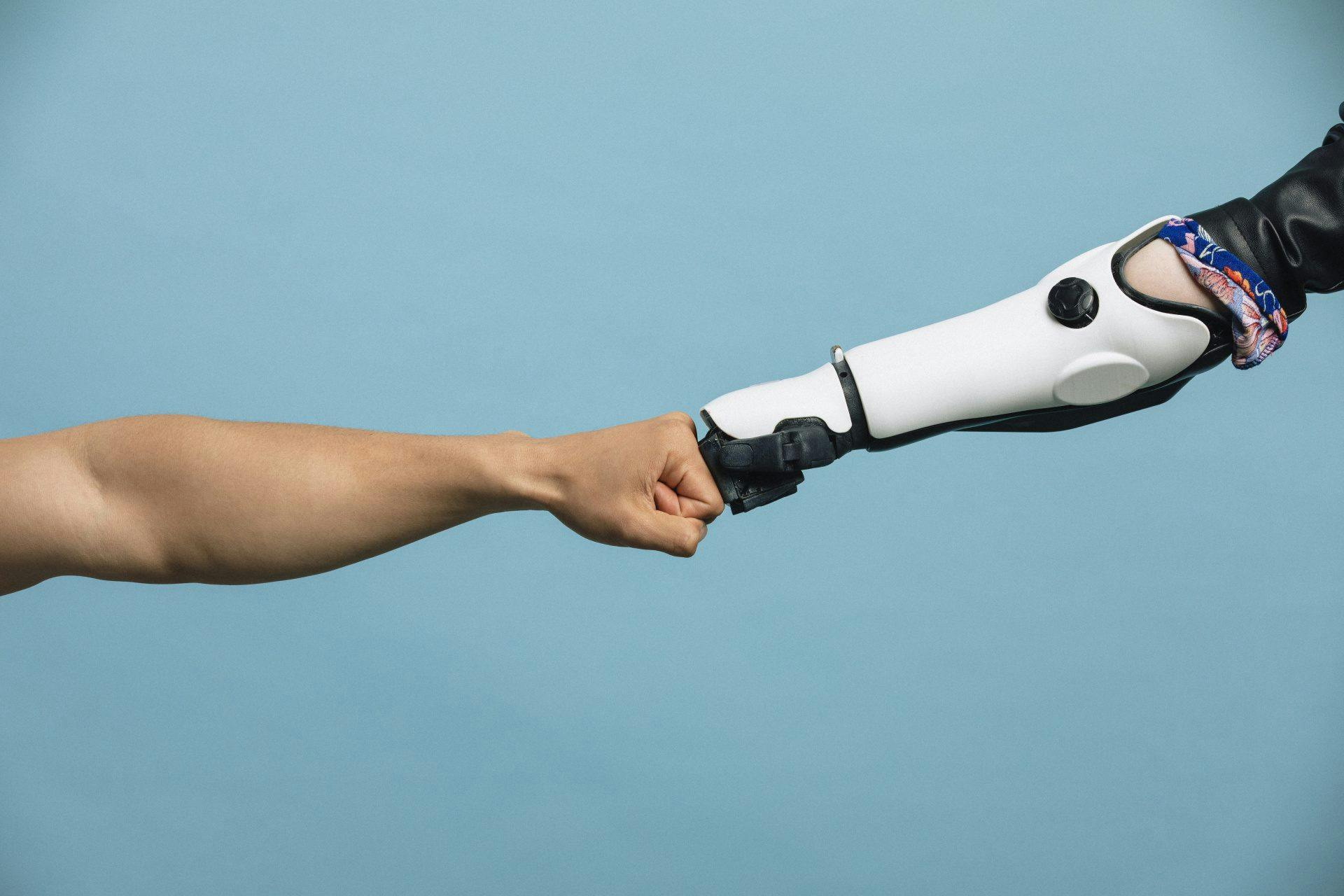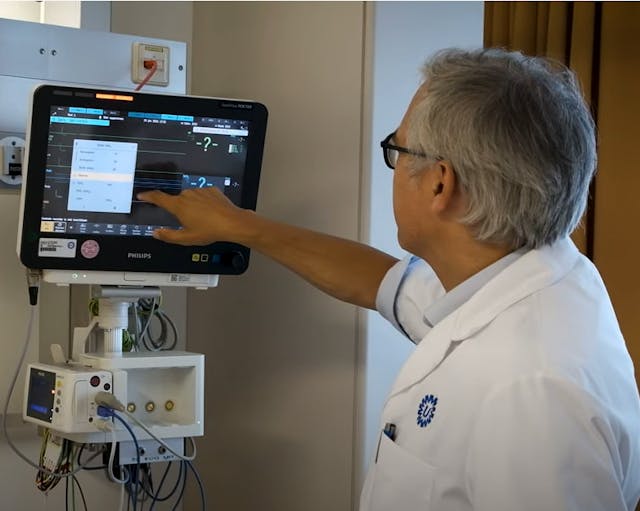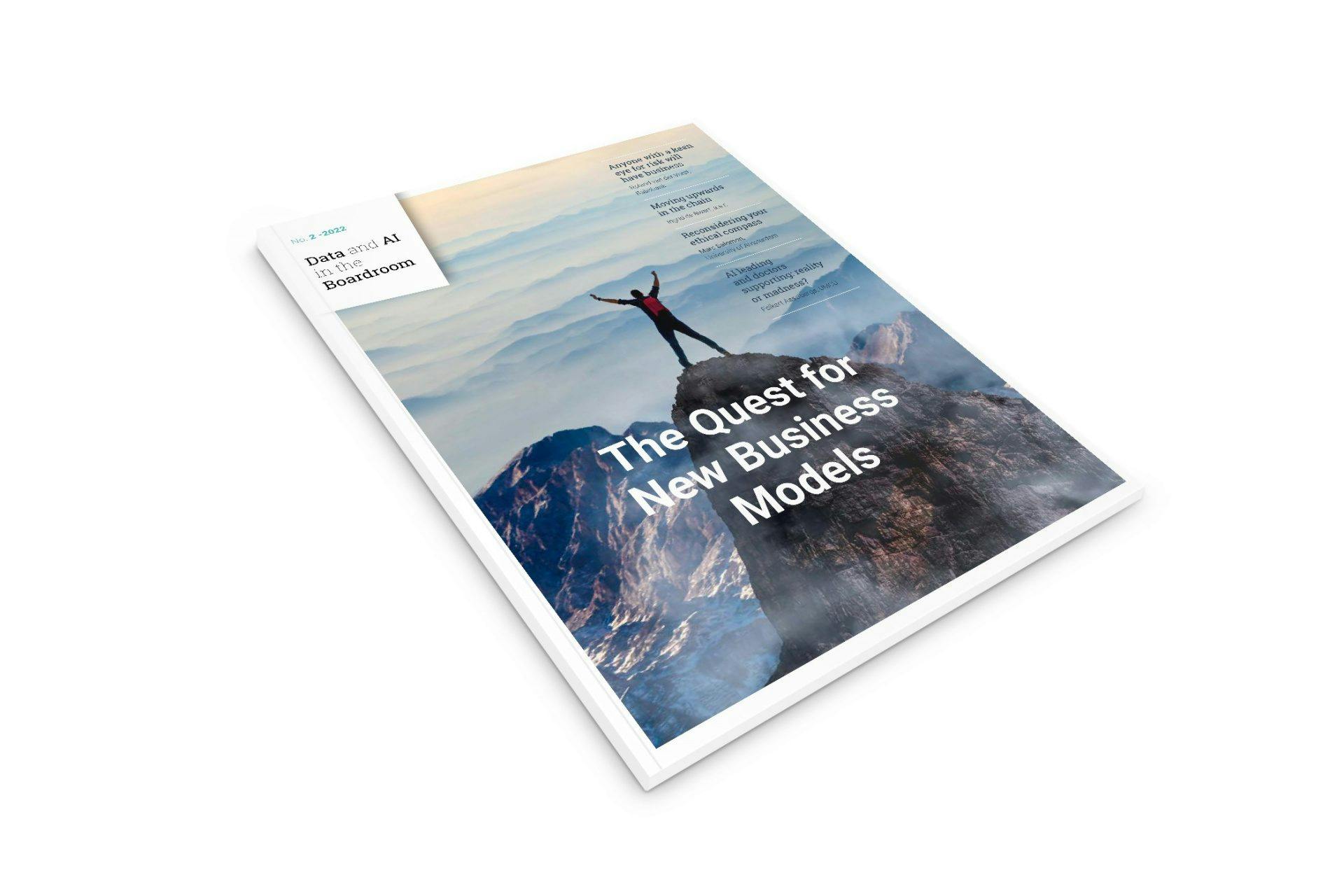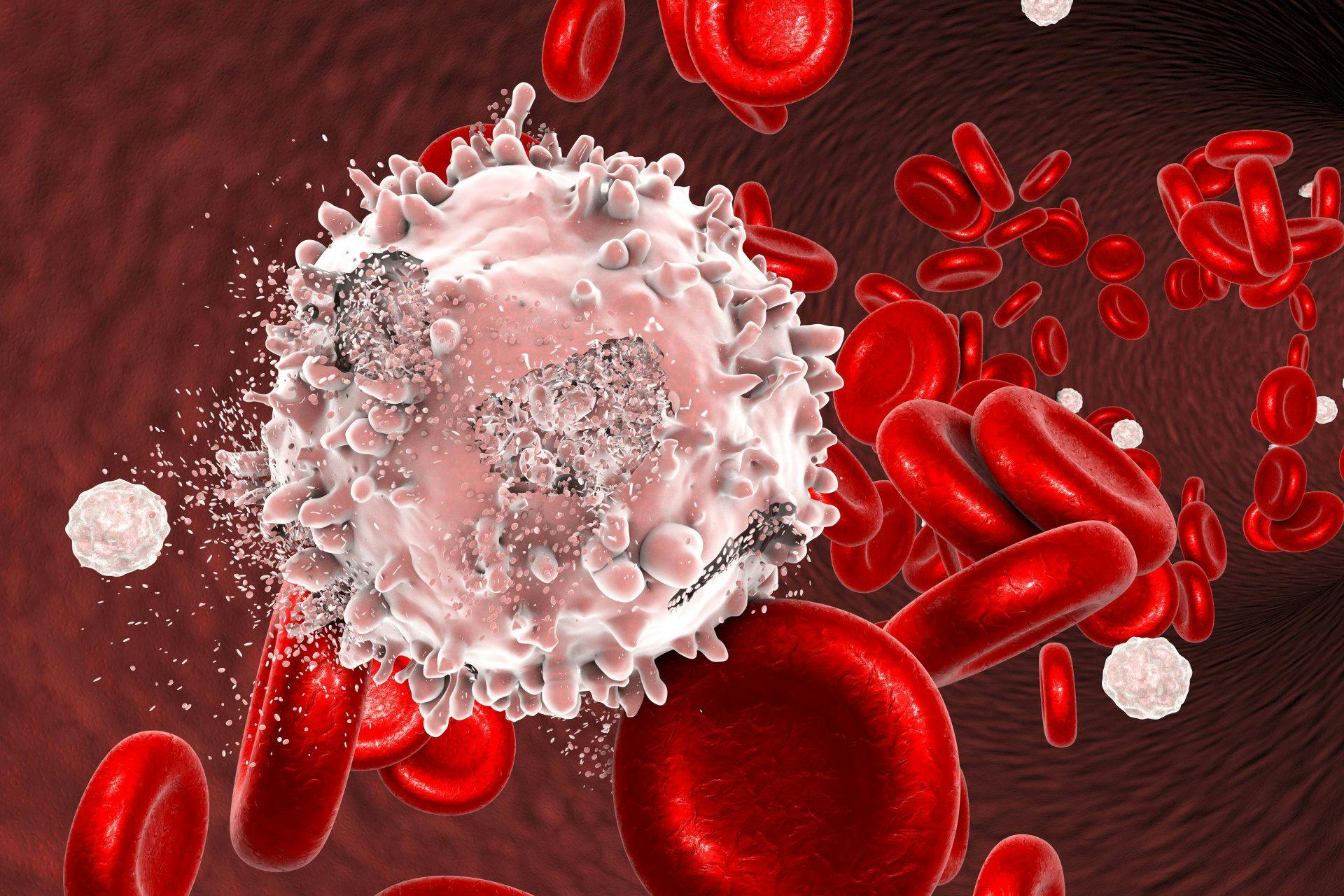In ten years AI leading and doctors supporting: reality or madness?
Read time: 8 minutes"AI empowers patients, thanks to the democratization of data"
Folkert Asselbergs is a cardiologist at UMC Utrecht and is involved in several data collection and data analysis projects in the field of personalized medicine. In the near future, Artificial Intelligence (AI) will play a much bigger role in healthcare, including in hospitals. Asselbergs says: “At the moment, AI still plays a supporting role, but I think that ten years from now, AI will be in the lead and doctors will primarily support.”
Interview with Prof. Dr. Folkert Asselbergs, cardiologist and Professor Precision Medicine in Cardiovascular Disease at UMC Utrecht and University College London

ORTEC: The past 18 months showed that healthcare planning is essential, especially in times of crisis. But data are not always readily available. Has the General Data Protection Regulation inhibited progress in data exchange?"
"Covid is the prime example of why healthcare needs to modernize, but red tape has started slowing development to the speed of molasses.” Folkert Asselbergs does not hide his impatience. “AI is not widely used in healthcare yet, as many people do not yet see its added value. Part of the reason is that the Netherlands is very restrictive in using and sharing data for research. Making data available for research will be a game changer: it will allow for faster development of new and better algorithms, and will boost innovation. Plenty of ideas are out there, the technology is ready, but the progress is not as fast as I would like to see it. I would like to urge the Minister of Health to amend legislation and regulations more quickly: now is the time for action. The government has to facilitate data exchange before the next pandemic presents itself.”
The human touch
Asselbergs often finds himself debating colleagues who are less convinced of the value of AI. “For single sources of data, such as ultrasounds, MRIs and CT scans, AI is already advanced and developments are forging ahead at blistering pace. Integrating different data sources - particularly the unstructured text found in electronic health records - will take longer. AI now still plays a supporting role, but I sincerely think that ten years from now, AI will be in the lead and doctors will primarily support. We will still be the ones to talk to patients and make decisions about the suggestions put forward by AI, but I envision people coming in to a "car wash" of sorts with imaging, biomarkers and wearable data, giving them a top five of the most likely diagnoses. These are then mapped to existing scientific knowledge about what the therapy of choice should be for these types of patients. It would almost turn doctors into consultants.”

Prof. Dr. Folkert Asselbergs
"AI now still plays a supporting role, but I think that ten years from now, AI will be in the lead and doctors will primarily support."
ORTEC: Will patients accept this change? Or will they be wary of having an algorithm determine what is best for their health?
“Discussions often revolve around ‘the human touch’, but who is to say that AI isn’t better at that, too? You can take my word for it, there are some boorish doctors out there, and all the complaints we get revolve around communication. You could really wonder whether people are truly more empathic than computers.” The skeptical attitude to using AI adopted by many patients and colleagues can also be traced back to trust, or a lack thereof, in data, Asselbergs notes. “The feeling of: is it correct? A particularly telling example was a study that used deep learning on chest x-rays in the emergency ward. When they finally looked at the decisive feature of the prediction model, it turned out that the device used to take the images was the best predictor, because the Siemens device was used for bedridden patients and the Philips device for people who could still walk around. These are important pitfalls to consider, hence the call for explainable AI: you want to know what's under the hood."
“The skeptical attitude to using AI adopted by many patients and colleagues can also be traced back to trust, or a lack thereof, in data."
Capillaries of society
Once the trust is there, we might be off to the races, especially when it comes to personal medicine: "I think that patients will soon have their own Amazon or Microsoft or ORTEC platform that automatically retrieves all your information, if you give it permission, which you could then enrich yourself by adding DNA, biomarkers or a scan. That’s where algorithms are headed, but where are the risks? You share your results with a doctor to ask them their opinion, and even this doctor will, likely, have been chosen by AI.” With all these new technological possibilities, Asselbergs does foresee problems with regard to the different groups in society: “Data from people in underprivileged social groups are rarely captured by algorithms, even though they’re the groups the algorithms are used for most. That will be the most difficult challenge: getting to the capillaries of society. We are now considering the idea of a form of donor registration for data. If we don’t change the data inclusion, inclusiveness will be unachievable."
ORTEC: What developments can we expect in the shorter term? And to what extent does the Medical Device Regulation still raise practical issues for these types of AI applications?
"The big med-tech behemoths are coming and will focus mainly on prevention. They will steer clear from the curative side of things at first, because it is considerably more complex, due in part to the Medical Device Regulation. Besides, there is simply not as much money to be made there. We will all have to discover how developments in hospitals unfold together. The platform economy is already upon us: whoever has the platforms with the biggest user base, wins. You don’t necessarily need to have the better product: scale is what matters. It’s a shame, to be honest, because it does slow down innovation.”
“Data from people in underprivileged social groups are rarely captured by algorithms, even though they’re the groups the algorithms are used for most. That will be the most difficult challenge: getting to the capillaries of society. We are now considering the idea of a form of donor registration for data. If we don’t change the data inclusion, inclusiveness will be unachievable."
The Quest for New Business Models
This article is part of the 2nd issue of our magazine Data and AI in the Boardroom. Get your copy now.
Technological and social developments are putting pressure on companies’ revenue models and different fields of expertise. Climate change, digitization, and the call for more diversity, inclusion and transparency influence the way we do business, the way we look at data and the way we envision the future of our planet. Are you already rethinking your business models?
In this issue you’ll catch a glimpse of the approaches by leading figures at organizations like Rabobank, UMCU, a.s.r. and University of Amsterdam.

The whole patient
University College London, where Asselbergs is a part-time professor of Precision Medicine, employs data managers for each of its divisions. Data scientists are mostly involved in the research side of healthcare, but Asselbergs can hardly imagine not having a data scientist in his department in ten years’ time: “Someone who, when we discuss patients during the morning handover, can chart the optimal course based on the data. Data scientists are far from having the final say, but AI support will come to play an increasingly important role in healthcare decision-making.” He believes the most important thing AI will bring to healthcare is patient empowerment, thanks to the democratization of data. “The experience and knowledge gap between patients and doctors is enormous, including data knowledge. We speak our jargon and wear a white coat, all of which creates distance. That distance will soon disappear because patients will know exactly what I know. The USA is miles ahead of the Netherlands in terms of general knowledge of anatomy and which doctor to see. In the Netherlands, people tend to think: you have a degree, you decide.”
ORTEC: Have medical schools incorporated these new insights about AI in their programs?
“Most have not. That's why the DataClinics program is working on a Data Science basics curriculum for healthcare professionals. We need to prepare healthcare professionals for the future. Specialisms are still very traditional and organ-centered, but that will change, and the question is whether specialisms as we know them will be around for much longer. I think technical medicine is the profession of the future: it’ll prove to be essential. Doctors will still need to do their rounds and listen to patients, but they will have to become communication experts or consultants, reasoning more from the perspective of the human being they are treating rather than their organs. You could consider incorporating an internist into the surgery department, for instance, to help optimally treat patients with multimorbidity. At the same time, that internist will be able to harness U-Prevent to tackle prevention issues, so that the GPs no longer have to. Now that the patient is in hospital anyway, why not give them a quick check-up and treat their high blood pressure while they’re here? Hospitals can still be very siloed at times. With our new strategy, we get to see a much clearer picture of patients even before they come in for surgery. We treat the whole patient: while you’re here to get a new hip, we’ll treat your cholesterol at the same time. It’s an approach that makes a lot more sense.
“The experience and knowledge gap between patients and doctors is enormous, including data knowledge. We speak our jargon and wear a white coat, all of which creates distance. That distance will soon disappear because patients will know exactly what I know."
About the interviewee
Professor Folkert W. Asselbergs has been working at UMC Utrecht as a cardiologist since 2010. He specializes in diagnosing hereditary cardiomyopathy and heart failure. Since 2013, he has also held a part-time position at the Institute of Cardiovascular Science and Institute of Health Informatics, University College London as Professor of Precision Medicine. Asselbergs has been head of Circulatory health at UMC Utrecht for two years and chair of the Data Infrastructure pillar of the Dutch CardioVascular Alliance. In addition, he researches how genetic information and other data can be (re)used to individualize diagnostics, risk prediction and treatment of cardiovascular diseases.
This interview is held by Menno Brandjes, Director Health and Arjan Gras, interviewer
U-Prevent
U-Prevent is an innovation developed by UMC Utrecht and ORTEC that has already been applied in the field of cardiovascular risk management. U-Prevent supports physicians and patients in determining cardiovascular risk and gives both parties easy access to a list of available resources and medication that can be used to reduce the risk of cardiovascular disease. By doing so, it facilitates cooperation between the doctor and patient to prevent cardiovascular events. ORTEC owns U-Prevent and the platform under U-Prevent for risk prediction models, including in other medical domains. The current version of U- Prevent was completely redeveloped by ORTEC to meet the requirements for use in clinical practice.

Don't miss out on the next insights.
Sign up to our mailing list and be the first to receive our newest insights and digital magazine in your mailbox.

